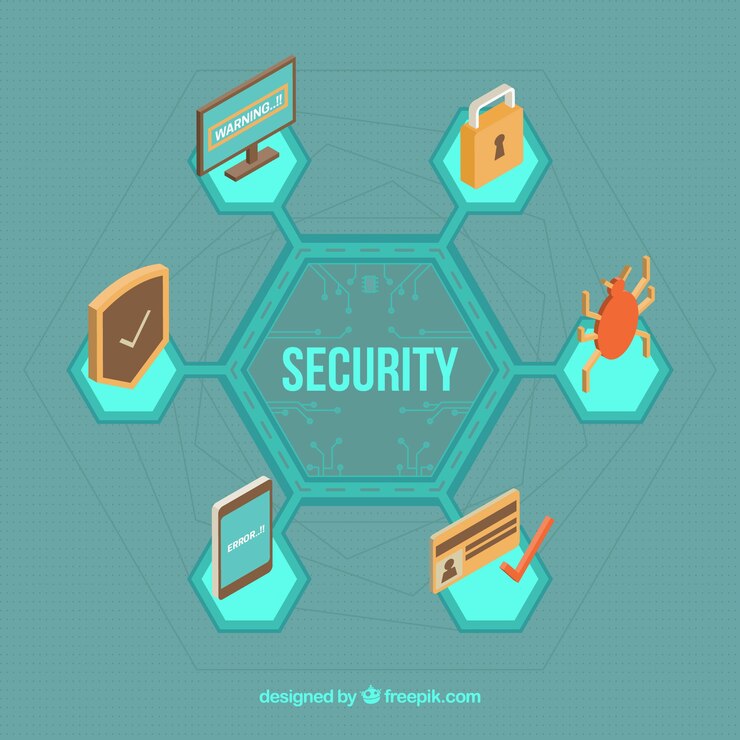In today’s digital age, where data is more valuable than ever, ensuring the safety of your personal and professional information is crucial. With the rise of cyberattacks, data breaches, and online scams, adhering to strong security practices has become necessary for everyone.
Whether you’re managing personal accounts or overseeing an organization’s data, following these top security principles can significantly reduce your exposure to online threats.

Use Strong, Unique Passwords
Your first line of protection against unwanted access is a strong password. Too often, people reuse the same password across multiple platforms, which can make it easier for hackers to gain access to various accounts if one password is compromised.
Strong passwords should contain a combination of special characters, digits, and capital and lowercase letters. Don’t use information that can be guessed, like pet names or dates of birth.
One effective method is to use passphrases—long strings of words that are memorable yet difficult for anyone to guess. Additionally, consider using a password manager to store and generate unique passwords for each account. This way, you won’t have to rely on memory alone.
Enable Two-Factor Authentication (2FA)
Two-factor authentication (2FA) adds an extra layer of security that goes beyond just a password. With 2FA, even if someone manages to obtain your password, they would still need a second form of verification, such as a text message code or an app-generated token.
This significantly lowers the likelihood of unauthorized access. Set up 2FA on all accounts that support it, especially for sensitive services like online banking, email, and social media. By doing so, you create an additional barrier to cybercriminals trying to infiltrate your accounts.
Keep Your Software Updated
Cybersecurity threats often target vulnerabilities in outdated software. When you fail to update your operating systems, applications, or security programs, you leave your devices open to attack.
Developers regularly release patches and updates to fix security holes and enhance performance.
To protect yourself, enable automatic updates where possible, or make it a habit to check for updates regularly. Whether it’s your smartphone, laptop, or desktop, keeping everything updated ensures you’re always protected against the latest threats.

Backup Your Data Regularly
Data loss is something we all hope to avoid, but it can happen unexpectedly. Whether due to a system crash, hardware failure, or a ransomware attack, losing your data can be devastating.
To minimize the risk of losing important files, set up a routine to back up your data. Utilize both local backups (like external hard drives or USB drives) and cloud-based solutions to ensure redundancy.
With cloud storage, you can access your files from anywhere, and your data is protected in a secure, off-site location. Backing up your data regularly gives you peace of mind, knowing that you can quickly restore your important documents in case of an emergency.
Practice Safe Browsing Habits
The internet is filled with potential risks—malicious websites, phishing emails, and hidden malware. One of the most effective ways to stay safe online is by practicing good browsing habits.
Do not open files from unreliable sources or click on dubious links. Even seemingly harmless ads or pop-ups can be disguised ways to infect your device with malware.
Additionally, always check the website’s URL before entering sensitive information; look for “HTTPS” instead of “HTTP,” which signals that the connection is encrypted.
Also, be cautious when using public Wi-Fi, as these networks are often insecure and easier for hackers to exploit. When necessary, use a Virtual Private Network (VPN) to secure your connection.
Use a VPN
A VPN is a powerful tool that protects your online privacy and secures your internet connection. It creates a private, encrypted tunnel between your device and the internet, making it difficult for third parties to spy on your online activity.
This is especially important when connecting to public Wi-Fi networks, where hackers often lurk. With a VPN, your sensitive data—such as login credentials, financial information, or personal messages—remains encrypted and protected from prying eyes. If you value your privacy and security while browsing, using a VPN should be a priority.

Limit Access and Permissions
In both personal and business contexts, it’s important to control who has access to sensitive data. For businesses, this means implementing policies that restrict access to essential information based on roles and responsibilities.
By granting only the necessary permissions, you minimize the risk of data being mishandled or exposed. Similarly, review the permissions on your personal accounts and devices periodically to ensure they remain aligned with your needs.
Educate Yourself and Others About Security Threats
One of the most effective strategies to counteract cyber threats is education. Stay informed about the latest security risks, such as phishing scams, identity theft tactics, and emerging malware.
When you understand the methods hackers use to exploit vulnerabilities, you’re less likely to fall victim to them. This knowledge is also important to share with friends, family members, or employees.
A well-informed network of people is far less likely to click on phishing emails or open suspicious attachments. Regularly educating yourself and those around you on new threats will help create a safer online environment for everyone.
Conclusion
Staying secure in today’s online world requires vigilance, awareness, and proactive steps.
By following these top security principles—using strong passwords, enabling two-factor authentication, keeping software updated, backing up data, practicing safe browsing, using a VPN, limiting access, and educating others—you’ll significantly reduce your risk of falling victim to cyberattacks.
Remember, cybersecurity is an ongoing effort, and the more you integrate these practices into your daily routine, the safer you and your data will be. Protecting your information is a responsibility that shouldn’t be taken lightly, so start implementing these security principles today.




